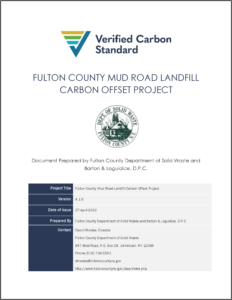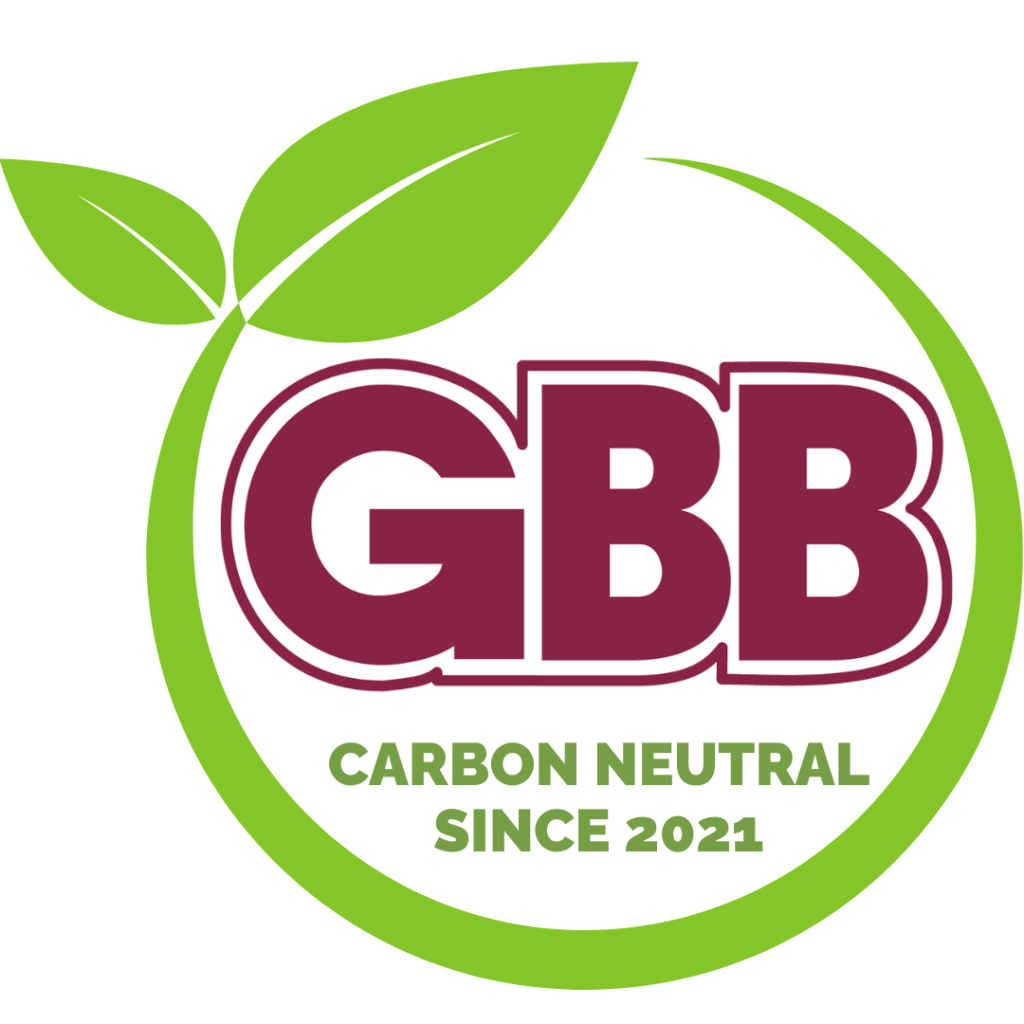About the Fulton County Project
 The Fulton County Mud Road Sanitary Landfill is an active permitted municipal solid waste (MSW) landfill that began accepting waste in 1989. The landfill consists of 10 constructed landfill cells and has an additional unconstructed capacity of approximately 6.0 million cubic yards. In 2007, major upgrades and expansions to the existing landfill gas collection system were undertaken to produce enough landfill gas of sufficient quality for sale to a landfill gas-to-energy (LFGTE) plant. The County’s energy partner, IES, began constructing the landfill gas to energy plant in July 2009 and began operating the plant in June 2010. The LFGTE plant combusts all of the landfill gas collected. The project consists of expanding and improving the landfill gas collection system and constructing an LFGTE plant to destroy landfill gas. The project achieves greenhouse gas emissions reductions through the collection and destruction of methane from the landfill, which converts the methane to carbon dioxide and prevents the methane from being vented to the atmosphere. Collected landfill gas methane is combusted in two (2) internal combustion engines that are used to generate electricity. The estimated annual average GHG emission reductions and removals are approximately 71,389tCO2e, and the total over the 10-year crediting period is estimated to be approximately 713,892tCO2e.
The Fulton County Mud Road Sanitary Landfill is an active permitted municipal solid waste (MSW) landfill that began accepting waste in 1989. The landfill consists of 10 constructed landfill cells and has an additional unconstructed capacity of approximately 6.0 million cubic yards. In 2007, major upgrades and expansions to the existing landfill gas collection system were undertaken to produce enough landfill gas of sufficient quality for sale to a landfill gas-to-energy (LFGTE) plant. The County’s energy partner, IES, began constructing the landfill gas to energy plant in July 2009 and began operating the plant in June 2010. The LFGTE plant combusts all of the landfill gas collected. The project consists of expanding and improving the landfill gas collection system and constructing an LFGTE plant to destroy landfill gas. The project achieves greenhouse gas emissions reductions through the collection and destruction of methane from the landfill, which converts the methane to carbon dioxide and prevents the methane from being vented to the atmosphere. Collected landfill gas methane is combusted in two (2) internal combustion engines that are used to generate electricity. The estimated annual average GHG emission reductions and removals are approximately 71,389tCO2e, and the total over the 10-year crediting period is estimated to be approximately 713,892tCO2e.
Verified Carbon Standard
The Verified Carbon Standard (VCS) Program is a full-fledged carbon offset program developed and run by the non-profit Verra. The VCS program is the world’s leading voluntary program to certify greenhouse gas (GHG) emission reduction projects. The voluntary carbon market (VCM) was formed to drive finance to activities that reduce GHG emissions. In its early days, the market was characterized by pioneering new approaches to fighting climate change. Over time, the VCM has evolved and matured into a powerful and effective means to tackle climate change by driving resources to projects which deliver independently verified and additional emissions reductions on a global scale.
The VCM also enables companies to achieve ambitious climate goals by complementing internal emission reductions – a necessary first step – by purchasing carbon offsets. By the end of 2019, the market had achieved over 608 million tons of CO2e in emission reductions or removals, equivalent to more than 131 million cars taken off the road for a year.
VCS Validation Report
A report was provided to the Fulton County Department of Solid Waste as a deliverable of the VCS project validation process for the Fulton County Mud Road Landfill Carbon Offset Project. This report describes the steps involved in conducting the validation, the findings of the validation performed against the VCS Standard, and the criteria given to provide for consistent project operation, monitoring, and reporting of GHG emission reductions.
The VCS-approved methodology applied to the project activity is the Clean Development Mechanism (CDM) methodology ACM0001 –Consolidated baseline and monitoring methodology for landfill gas project activities, Version 11.0 (ACM0001). The Audit Team was provided the initial version of the VCS PD on November 10, 2011. Based on this documentation, a document review and desktop audit took place, which resulted in corrective action requests and revisions to the VCS PD. The final version, May 23, 2012, serves as the basis of the conclusions presented.
The destruction of methane in landfill gas that otherwise would be vented to the atmosphere results in a net reduction in CO2-equivalents. The validation process consists of the independent third-party assessment of the project design and GHG emission reduction assertion against the criteria stated in the VCS Standard, 1 February 2012, v3.2 and the approved CDM methodology ACM0001, Version 11.0. During the validation process, First Environment, Inc. issued several clarifications and corrective action requests–all of which were addressed sufficiently by FCDSW. In summary, First Environment reasonably ensures that the Project meets all relevant VCS Version 3, v3.2 requirements and correctly applies the VCS-approved CDM methodology ACM0001.
Click here to view the VCS Validation Report.
As noted, on September 20, 2022, GBB received the official verification of our purchased and retired offsets for the emission of greenhouse gases relating to operations for calendar years 2021 and 2022.
Evolution Markets Inc. retired 120 Verra Registry Verified Carbon Standard VCU. The VCU was issued in accordance with Verified Carbon Standard protocols. The issuance and ownership of these instruments are tracked in Verra Registry using unique serial numbers to prevent double counting or double selling. Details about the instruments are listed below.
-
- Quantity of retired VCU: 120
- Serial numbers: 9115-69723173-69723292-VCS-VCU-260-VER-US-13-834-01012019-31122019-0
- Date of retirement: Sep 20, 2022 3:38PM
- Beneficial Owner: Gershman, Brickner & Bratton
- Retirement reason details: Environmental Benefit; The credits are retired on behalf of Gershman, Brickner & Bratton for their 2021 and 2022 emissions
- Public URL: https://registry.verra.org/myModule/rpt/myrpt.asp?r=206&h=167007
FULTON COUNTY MUD ROAD LANDFILL CARBON OFFSET PROJECT
-
- Project type: Waste handling and disposal
- Project Country: US
Carbon Neutrality and Beyond

As part of our ESG efforts, GBB set out to become carbon neutral. This process requires limiting emissions and procuring carbon credits from voluntary markets to offset the unavoidable emissions in cases where they cannot be limited. The GBB team has a continued goal to undertake meaningful activities to reduce the firm’s footprint and, when it cannot be reduced, scrutinize carbon offset options to ensure the impact of the offset is material.






